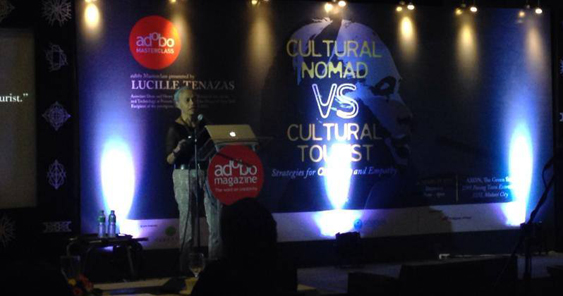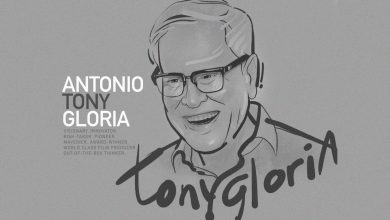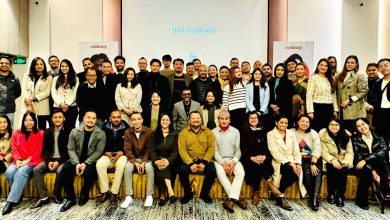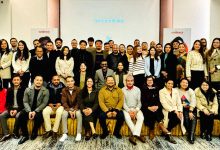Delegates at the adobo Masterclass demonstrated their chops as cultural nomads in the workshop portion of the day-long session.
Masterclass lecturer Lucille Tenazas set participants the task of exploring the immediate surroundings of the venue, Green Sun in Pasong Tamo extension, to identify problems and devise solutions.
Split into seven groups, the participants came up with solutions as creative as they were diverse – from helping vendors in the area improve their working conditions and lives to hitting on food and beverage ideas.
Three groups targeted the area’s food and cigarette vendors, who work in extremely difficult conditions in cramped booth spaces, without so much as a chair or a fan for comfort.
One group found a vendor who worked from 7am to 5pm for the past 26 years selling food, standing all the while since there was no room in the limited space allotted her. Their solution was to provide a collapsible chair because the rules set by the Makati government, which owns the space, did not allow for any expansion of her space.
Another group also proposed improving vendors’ working conditions but with more ambitious plans to build photo frames for their family pictures and provide hand-operated fans and seating in the booth, which fits just two people. The family pictures would remind the vendors they were working for a purpose, while the other facilities would provide some relief during the long work day. “We want them to be happy at their home because the booth is really their home,” said a group member.
Another group came up with a powerful idea to provide food for thought so cigarette vendors could consider a simple solution to improving their fortunes. They proposed creating an educational chart with an infographic based on cigarette sticks – the tallest reflecting the boundary and booth rentals that take a big bite out of their daily earnings of 2,000 pesos, leaving them with just a little over 400 pesos to take home. The group wanted to demonstrate how putting aside part of their earnings towards buying their own booths would eventually boost their earning power.
“One of the greatest thing is you are teaching them to be self-sufficient, considering their arrangement where they take home only 25% of what they earn,” said Tenazas.
Another group proposed improving the area’s road conditions where limited or lack of sidewalk space makes walking especially hazardous for pedestrians. Rather than the costly outlay of building new sidewalks, they proposed painting over the existing lines that denote the sidewalk but in a bolder color that also reflected light at night. They also proposed creating signs to point the way to various establishments such as restaurants, cafes or wine shops along the street, thus encouraging more people to walk rather than drive on this congested road.
“What you are doing kinda encourages civic activity with safety being one while highlighting offerings on the street,” Tenazas said of the idea.
Two other groups proposed F&B-linked ideas. One group hit on the idea of ‘Umay Goodness’, based on food hacks but featuring convenience store items as a way to cleanse the palate after lunch. The group went as far as creating their own Umay Goodnes video featuring salty and sweet food combinations – popcorn with milo and butter or saltine crackers with yogurt – as palate cleansers.
“There’s a sense of humor and a sense of humor always sells. I liked the play on words from the phonetic sound of it,” Tenazas said.
For another group, their walk led them to wine shop. An oenophile in the group ended up making it a wine 101 tour, which helped make the beverage less intimidating and more accessible to the other members. What started as a plan to redesign the wine store to make it more customer-friendly turned into focusing on a paradigm shift in perception about wine consumption.
“We turned ourselves from purposeless wine tourists into purposeful wine nomads,” said a member of the group, echoing Tenazas’ previous Masterclass, where she taught participants about ‘Purposeful Purposelessness’.










